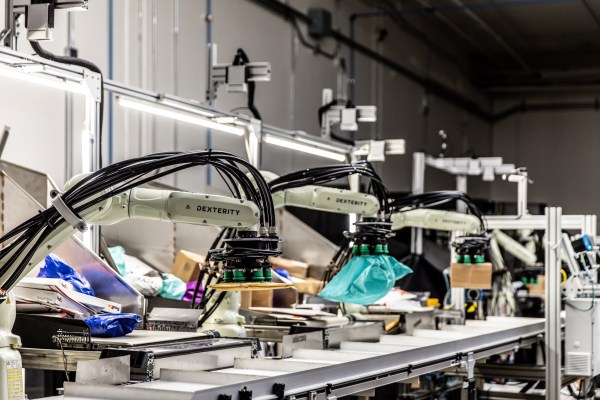Dexterity emerged from stealth in July of last year, touting a $56.2 million Series A. The Bay Area-based robotics startup was riding high on increased demand for automation at the height of the COVID-19 pandemic. More than a year later, the pandemic is, sadly, still here, and investor interest in the company has maintained along with it.
This morning Dexterity announced a $140 million equity funding and debt Series B, led by existing investors Lightspeed Venture Partners and Kleiner Perkins. Obvious Ventures, B37 Ventures and Presidio Ventures also participated in the round, which brings the company’s total funding north of $200 million and sets its valuation at $1.4 billion — impressive figures for a young company that isn’t yet a household name.
In spite of only coming out of stealth last summer, the company has been working with customers for two years now, moving more than 14 million items in that time, across 50,000+ product SKUs, including, “loosely packed deformable polybags, to delicate hot-dog buns, to floppy tortillas, to poorly sealed cardboard boxes, to bags of earthworms, to trays and crates of consumer food, to even a molten birthday cake.”
What separates the company from a lot of the warehouse/fulfillment robotics startups that tend to bubble up is its full-stack take on the category, ranging from hardware and software to deployment, working to actually install those systems in customer warehouses. And unlike other companies, Dexterity’s system is designed to integrate into existing warehouses, rather than a full ground up approach.
“Customers in retail, consumer goods manufacturing, and parcel handling need robots to scale quickly in order to manage the ever-increasing volume and variety of packages moving through their distribution centers,” CEO Samir Menon said in a release. “Dexterity is grateful to be at the forefront of delivering intelligent robotic systems in production across existing customer sites with the goal of rapidly transforming their warehouse operations.”
The company says funding will go toward deploying its first thousand robots into the world. Currently its systems are being used in North America and Japan.
